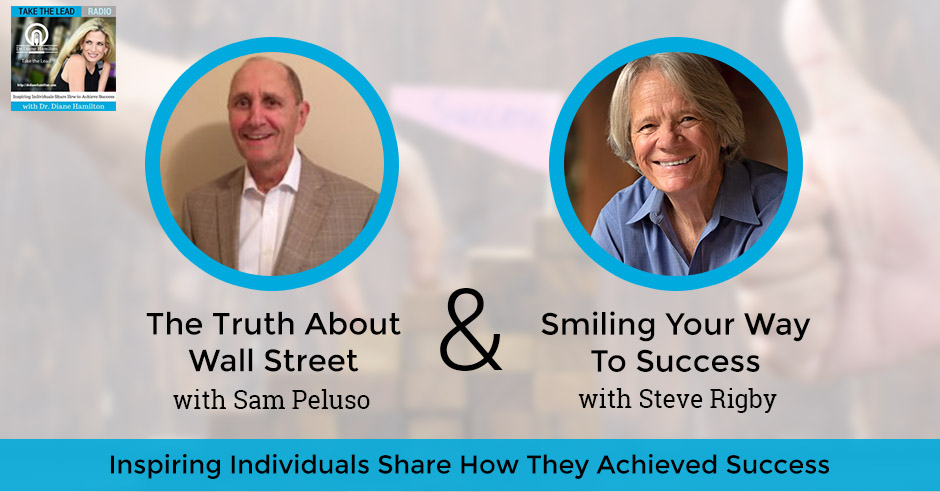
I’m glad you joined us because we have Sam Peluso and Steve Rigby. Sam is the author of Fat Cats…Really?: Observations of a 44-Year Wall Street Executive. Steve is the CEO of New Wings Consulting. He’s the author of S.M.I.L.E. It’s going to be interesting to talk to both of these gentlemen about their new books.
Listen to the podcast here
The Truth About Wall Street with Sam Peluso
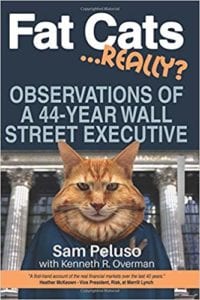
I am here with Sam Peluso who started with Merrill Lynch in 1970. Listening to politicians, TV personalities and press refer to Wall Street bankers as selfish, greedy fat cats led to his desire to write his latest book, Fat Cats…Really?: Observations of a 44-Year Wall Street Executive. This is going to be an interesting conversation because Sam was on the frontline of the highs and lows of Wall Street including meltdowns and bailouts. Welcome, Sam.
Thank you, Diane. Thank you for having me.
You’re welcome. I’d love the chance to chat with you a little bit when we were at the Forbes Summit. You were nice enough to give me a copy of your book, which I loved. I finally got a chance to read it. I was very fascinated by the story. It reads like a novel in some places. I loved the whole storytelling aspect of what you went through. I want to talk a little bit about your background and what made you want to write this book. Can we get into that and we’ll talk about the book?
I started in September of 1970. I started out as a retail broker for about four years, realizing that this was not going to be my career. I was not all that good at it, to be honest. As a result of that, it was an opportunity to go into the government bond department. I was very anxious to do something new. I spent quite a few years in government bonds, both in sales as well as trading. From there, I moved on to national product management and moved down to Jacksonville to work in the mortgage department on the risk side. I handled the risk and hedging of our mortgages in Jacksonville until I was retired.
I worked in mortgage lending as well. That’s the part of your book I could definitely relate to. How they packaged up loans and sold them and the way that we viewed the real estate market. A lot of people were getting loans thinking, “Everything’s going to go up and you can refinance later so these subprime loans won’t be so risky.” You just refinanced and you fixed your credit in these couple of years that you have, but it didn’t turn out that way. We saw a lot of things that happened that maybe you should have seen. Did you predict what happened in your mind or were you as blindsided as other people?
I was definitely blindsided. As a matter of fact, back in 2005 and even in 2006, the market was smoking. People were all involved in not only the stock market but also the mortgage market. It was very common to see on TV people flipping houses and making a fair amount of money as a result of doing it. That caught fire. When you add it all up, though, there were several things that created the meltdown. Wall Street got blamed for it. I’m talking about things like cheap money as a result of the Federal Reserve keeping interest rates so low. There were some crazy ideas about how to finance a house, for example, 100% financing.
You were in the business. You buy a house, you need to put 20% down. That’s typical. Back then, it was 100% financing, and no one questions it. Someone came up with an instrument called stated income for loans. When you think about that, if someone is making $50,000 and they want to buy a house that requires a $60,000 income the answer would be, “We’ll put $60,000 down as your income and no one’s going to check it.” That existed. It happened. When you add all of that up and you say, “What did happen that caused the meltdown?” There were so many issues. Those are only a few of them.
You’re bringing back my job experience in my mind on what I remember about stated loans. My territory was to dial-for-dollars in Northern California. There were houses that were $1 million and up. You couldn’t even get a bad place for $1 million. These people were making $60,000, if that, maybe they were even just hostesses or whatever they did. They’re stating these unbelievable incomes trying to get these houses. It was staggering to look at some of the loan applications that I’ve seen with 400-credit scores and 100% stated that type of a lending situation. What helped me in that market was going through underwriter training. It was probably one of the best training programs to get an idea of what they’re looking for and how it all worked. A lot of good things crashed and a lot of people got bailed out. You talked about some of who paid back. You painted a more positive picture of people that maybe we don’t have such a positive picture of. Is that what your point was for the book?
[bctt tweet=”Things are going to change as fast as they can possibly change.” via=”no”]My point was to talk about all those people in my 44 years in the business, who made a major impact not only in the mortgage market but on so many other markets. Being blamed and that’s where the Fat Cats comes from, for some of the problems that existed back in 2008 and 2009, worked on me personally. They didn’t make the poor decisions. It was the more senior people in the firms that made those bad decisions. That’s another reason why I wanted to speak up.
I saw that you’d done a lot of media in the past. You had a lot of great pictures. I don’t know if the final copy of the book has the same pictures in them, but I enjoyed that. Did you do that in the final book?
We did. I was pleased to see that.
You were interviewed by some pretty interesting people. You were in a very madmen era, not a lot of women, in some of the pictures I’ve seen. You made a comment that I wanted to talk about a test that you had to take. Would you tell that story?
It was the test that was given to many of us on Wall Street. There are a lot of different questions. There was a psychological test that many people are familiar with. Questions like, “Do you prefer to mow your lawn on weekdays as opposed to weekends?” There was another question about, “How did you get along with your siblings?” I didn’t have anything to do with designing them but they worked. There was some reason or some way they were looking for you to answer the questions that they wanted to make sure you’re qualified to be a salesperson or a trading person on the Street.
Can you give me the woman-based question because that was an interesting one?
That was a question regarding what was more important to you, a woman who was very qualified for the job application or one that was very good-looking? I don’t remember what I said or how I answered it.

The correct answer was that they were good-looking.
That was the correct answer.
It was such a different time.
It is totally.
It shows that you’ve gone through all these different decades of watching how things have changed. What do you think has been the biggest change? Is it women? Is it something else? As you’ve watched Wall Street and the banking industry, what do you think is the biggest thing that’s changed in your lifetime?
It was probably one of a couple of things. There was no one area. Certainly, having women on my team and that didn’t happen until I was basically halfway through my career. That took some getting used to. I wasn’t used to it. I grew up in a male environment in the business. As a matter of fact, at Merrill Lynch in our training class, there were 76 people. All of them were men from around the country, not one woman. Now, I believe more than 50% of the training classes at Merrill are women. That took a little getting used to, but I did because they made a major impact on my career.
I talked about that in my book. I named names, too. Those are the actual names. I didn’t make anyone up. I did talk to a few women and some of their comments are also in my book. They were a major input in my career. That was one thing. I know you asked me about what I did see along the way. When we first got started, there were no computers. Everything we did was a pen, pencil and paper. We kept records on long sheeted papers, where we had buys and sells of stocks as well as bonds. You can imagine what that was like to keep track of. When all of a sudden with the computer area opened for us, we didn’t know what to do. We had to be taught.
[bctt tweet=”Make sure you qualify to be a salesperson or a trading person on the street.” via=”no”]I can remember being a pharmaceutical rep before they had computers. Everything was in notebooks, pen and paper type of thing. You don’t think it’s any big of a deal at the time. When something changes, everybody freaks out when they introduced computers, because they are so used to what they were doing. They didn’t like it at the beginning of it as I recall. As I watched X-Files episode, you look behind the file cabinets and going through paper files, you forget that that’s what they had to do. It was not very convenient or efficient, but things have certainly changed. You talked about how you were fortunate to be chosen to help Mike Bloomberg launch his new company in the early ‘80s. Do you want to talk about that?
I do, thank you. This is probably in the mid-‘80s. We were working with a pencil and paper, recording all our trades. Mike Bloomberg approached Merrill Lynch in the early ‘80s with his new trading program and new trading company. It was at a perfect time when we were looking to create our own system. I had this in the book. It turned out that our own systems people said it would cost about $3 million and would take two years to create a system where we can account for all our trades. Mike Bloomberg interviews with us and says, “I can do that in six months for $600,000.”
Everybody looked at him as if to think, “Okay,” but that was Mike. He was very positive and very results-oriented. Sure enough, in six months, we had a system and sure enough, it only costs $600,000. The bottom line is most of the traders didn’t want to use it. They were so locked into their pencil and paper routine. I was approached by my management who said, “Sam, you’re good at teaching and you’re good at training. Would you be willing to take this on for a project?” I did. Mike worked with us at our desk for a number of months as well as his team. He had a team of people as well. He coached us through his system and the rest is history. I wish I had bought some stock.
When I think about how it used to be in trading, what comes to mind is trading places where they’re selling pork bellies. I don’t know if you’ve seen that movie with Dan Aykroyd. Everybody is yelling and screaming. How has it changed from that time? Did you get to experience a lot of that on the floor?
When I was trading government bonds, we pretty much work through our own sales force around the country. I would get calls from our Chicago salespeople, our San Francisco salespeople and so on and so forth, who were covering their institutional accounts. We also worked through brokers, people like Cantor Fitzgerald. It was through the brokers that we kept our inventory on a positive scale. For example, if I got a call from a Chicago salesman who said, “Sam, offer me $1 million of the Treasury at 8.75.” I only had $500,000 in inventory. I wouldn’t say, “Here take this $500,000 and go to Morgan Stanley and buy another $500,000,” I want to do the whole trade. The only way I could do it was to work through Cantor Fitzgerald, who was an anonymous broker. Who would go to Morgan Stanley for me, buy $500,000 and sell it to me. I would not know that Morgan Stanley was the seller and they wouldn’t know I was the buyer. It was an anonymous way of doing business that worked beautifully for many years. However, now it’s all electronic. That was a voice-activated situation in those days. I’d talk to the person at Cantor Fitzgerald, who in turn would talk to the person at Morgan Stanley.
I had some people I’ve talked to, who’ve been on the show, who created algorithms for trying to beat the stock market. I had one guy I’ve talked to create a formula to predict when to get out if things were dropping. It was more of avoiding losses. There’s so much technology involved in how things are handled now. How has that changed the sales process?
It accelerates it. The sales process now is if you don’t act, if you want time to think about it, you will probably miss a move. I’m not at all that excited about that process because I do want to think about it a little. The algorithms are pretty much running the business and there’s so much trading going on, even before the market opens. Where years ago, when I was involved in trading, it didn’t start until 9:00, 9:30 or whenever it was back then. It didn’t happen until the bell rang. Now, it’s common to have many million shares trade long before the opening.

It’s interesting to see the impact on the sale of things. You didn’t have social media in the past, you didn’t have to worry about if you tweeted something and it affected your stock price like with Elon Musk. Does it surprise you to see all this stuff that impacted now?
I’m of the opinion that things are going to change as fast as they can possibly change. Am I excited about it? Maybe it’s because I’ve been in the business for so long that I do maybe long for the days when you had a few minutes to think about a trade. The information that’s available now, 24 hours a day, is beyond words. I don’t know if I could manage money now. If I was a portfolio manager managing someone’s money, I don’t know if I can do it because it takes much of your time and effort.
It’s a different world. A lot of people envision Wolf of Wall Street. It’s all drugs and partying. You come across as pretty wholesome. I don’t see you as a big party animal, but maybe I’m wrong. You did address that in the book. Were they all party animals? Is that Wolf of Wall Street you’ve seen a lot of that type of thing or is it a lot different than that?
I was involved with not only Merrill Lynch people but also French from Morgan Stanley, Goldman Sachs, Bear Stearns, and Cantor Fitzgerald. We became very good friends along the way because we all commuted together on a ferry boat. Did I see the Wolf of Wall Street involvement with the Merrill people that I knew or with the others I mentioned? It’s very rare that I see that. Rarely did I see anything that I would describe as questionable. I don’t want to say we were all choir boys. By the same token, we played the game fair. I don’t know about now. I can tell you when I was involved, we played the game as fairly as we could.
Do you think that how you left the industry was fair of how it ended? At the very end, when you left your last job, do you think that the way they let you go was fair?
I knew it was coming. When I got called in by my manager to tell me that our department is almost closed, there was no choice for her to make but to let me go. I was 72 at the time. I’d been with the firm for 44 years. It wasn’t a surprise to me. Would I have preferred maybe something friendlier, a little warmer? I did, but I wasn’t all that bothered by it, to be honest.
Now that you’ve gotten out of it. You’ve written this book. Who do you think would be the most interested person to read this? Who’s your target market for this book?
I wrote about all my friends on Wall Street. I’m hoping that a number of people that are still in the business, as well as those that were in the business when I was there, would definitely want to pick up a copy and read it. I do hope that happens. However, I’d love for a number of people who know nothing about the market. I quoted one in my book who said that she read the book. She was a friend of mine. I gave her a copy of it because I knew she didn’t understand the market. I wanted to get a fresh opinion from someone who had no idea what goes on Wall Street. She came back to me and said, “I was sorry the book ended. I wanted it to keep going. I enjoyed it that much.” I want to reach that person as well. I’d like as many people as possible to get a real genuine feel for what Wall Street is all about. That’s my intent.
Our mutual friend, Dr. Maja Zelihic has been on this show and she’s the one who told me how great your book was. She goes, “You’ve got to read this.” She read it on the airplane after the Forbes event. I remember her saying how great it was. I thought, “I want to read it.” When I was reading it, the first thing I did was I contacted Maja and I said, “This was well-written. I couldn’t put it down either.” I thought it was a very interesting storytelling. A lot of people could learn a lot about what happened and why it happened. It gives a unique perspective. Everybody looks at Wall Street in a certain way from their own lens and Maja and I talk a lot about perception. What do you think the perception is of people compared to what you’re trying to showcase in this book in terms of those on Wall Street, in lending and all that?
Wall Street still has an issue. It still has a problem. Wall Street is that boxer in the ring that keeps getting punched and no one is willing to stop the fight. Wall Street has taken it on the chin for too many years. Probably, it needs to come together and sell itself as an industry that not only does good, but it’s so necessary for mom and pop on the street. Wall Street and the banking industry, we couldn’t survive without either one of them. What they do for the small business people, what they do for employment, and what they do for the economy, can’t be compared. When you think about companies or countries that started out, one of the first things they do is set up an exchange only because they recognize the fact that through exchanges is when you can generate capital. The capital that’s needed to keep the gears going. I’d like to see Wall Street come together as an industry and talk about itself and all the great things it does for mom and pop.
What do you think about the Federal Reserve? Do we need it? What impact do you think it has?
Absolutely, we need the Fed. It plays a major role in the money supply. It plays a major role in controlling expenses and controlling unemployment. Those are a few things that the Fed is involved in. I liked the fact that they’re independent. They’re not beholding to any individual or any party. I would like to keep it that way. I know that there’s a pressure for the Fed to become more outgoing with their ideas and their plans. It’s a good idea. By the same token, what the Fed does for us in our economy can’t be replaced. I definitely believe that. Look at what the Fed did during the meltdown of 2007 and 2008, if it wasn’t for the Fed and the Treasury, I have no idea where we would be now.
With the bailing out, do you think that was a good choice?
It was a great choice. It was poorly communicated though because it made it appear as if the Fed and the Treasury were bailing out those fat cats on Wall Street. The reality is they were bailing out Main Street, but they didn’t do a good job selling it. We have one major bank that was going under. The question became, at that time was, “Could we survive as an economy if one major bank goes under?” The answer probably was, “Yes, we could have survived.” What if two major banks went under? We might’ve had a problem, not only nationally but internationally. Throw in Fannie Mae and Freddie Mac, two of the major buyers of mortgages. They were going under if it wasn’t for the government stepping in. You could add all the broker-dealers like my own, Merrill Lynch, Lehman Brothers, Bear Stearns and AIG, the largest insurance company in the world, were all going under. How about General Motors? Who would have ever thought? The government stepped in and bailed out General Motors. I can remember back then everybody was saying, “Let them go bankrupt. They deserve it.” You tell me what it would look like now if the Fed and the Treasury didn’t step in.
A lot of people are interested to see where things are headed with everything that’s happened in the past. What do you predict for the stock market in the future? Do you think that we can fix the mistakes that we had with mortgages and do this right in the future?
It’s a couple of things. Can this all happen again? I do answer that in the book. The short answer is “Yes, it can.” As long as we’ve got individuals, human beings involved in the money process, there’s a good chance that something like this could happen again. Can it happen though to the magnitude and extent that it did? I doubt it. I say that because broker-dealers now have managed to beef up their capital in a major way, thanks to the Fed. They also managed to beef up their legal and compliance department. Even Jamie Dimon at JPMorgan Chase talked about how one of his biggest departments is the legal and compliance department.
The reason for that is to keep an eye on the risk involved in the business. You’ve got the Volcker Rule that came out because of the meltdown to protect individual investors. The Volcker Rule was all about making sure that client assets and the firm’s assets were not mixed. Add to that Dodd-Frank who came up with a Consumer Protection Act and a number of things regarding that like the Orderly Liquidation Authority. When you add all that up, what do I see the future of the business? I liked the fact that there are more regulations. It was necessary that’s proven. There’s more compliance with those regulations because they’re answering to the Federal Reserve System now. I hate to be too optimistic, but I feel good about it.
There are not too many people who’ve had the experience that you’ve had. It’s an amazing story of what you were able to see and experience throughout 44 years on Wall Street as an Executive. A lot of people would find this very interesting. It’s called Fat Cats…Really?: Observations of a 44-Year Wall Street Executive with Sam Peluso as the author. I appreciate having you on the show, Sam. Do you want to share how people can reach you and go find the book?
It’s on Amazon.com. Type in Wall Street or type in Fat Cats…Really? by Sam Peluso. That’s all you have to do and it pops up.
Sam, thank you so much for being on the show.
It was my pleasure, believe me. Thank you so much.
You’re welcome.
Smiling Your Way To Success with Steve Rigby
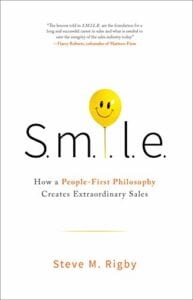
I am here with Steve Rigby, CEO of New Wings Consulting, and the author of Circle Selling: A Revolution-ary Approach to Sales Success. His firm helps salespeople, sales teams and companies get in the people business. He redefined success and focuses readers on making a difference, not just $1. I’m interested to have you here, Steve. I love when we talk about sales because I was in sales for many decades. I’m looking forward to it. Welcome.
It’s my pleasure to be here, Diane. I’m absolutely honored. Thank you.
You’re welcome. You’ve been in this home building industry for decades. Is that what you’re still doing now or are you in all kinds of things? Do you mostly focus when you consult on homebuilding industry or do you consult in all industries?
It’s all industries. The majority of it tends to migrate back to home sales in real estate with over three decades. You build a lot of relationships. They maybe remember the value you added in their lives and the difference they made, and they want to grow and get a little bit better with their opportunities, and they call me. It always comes back to a lot of those contacts. A lot of what I’m doing now centers around the second book that I had finished called S.M.I.L.E. I wrote it for all sales. The first was written for all sales, too. S.M.I.L.E. is a very people-oriented book. I referenced home building in it and real estate, also furniture, swimming pools, automobiles and anybody selling anything to anybody that these books and probably everything you’ve written can apply to the same thing. It’s all about people helping people.
[bctt tweet=”Have a curious mind, a listening ear and an open heart.” via=”no”]What does S.M.I.L.E. stand for exactly?
The S is to keep things Simple. The M is it’s up to Me to be successful in what I do and in the storyline, it gets inverted to Me becomes we. We understand the power of relationships and referrals to grow your business. The I is about Identify the individuals. It taps into personality styles and behavioral styles. The L is to make the buy-in decision, not one big decision, but a series of Little decisions. It’s developing a checklist of little things that could be important. If you get a yes to enough of them, generally, the person who’s probably going to buy and they’re going to buy from you, because you’ve done all the other things. The E, maybe the most important of all, it’s a philosophy. It’s to Enjoy everyone you meet and everything you do. When we choose to begin each day that way and each encounter that way, we’re looking for the good in it. We’re celebrating what’s right. Everything else begins to fall into place.
It’s so important and that’s why I think that engagement is such a hot topic right now with so many organizations because many people aren’t engaged. They’re not enjoying what they’re doing. It costs $500 billion a year. I am a personality and behavioral expert. I like the I quite a bit. I could remember being in sales in the ‘80s. They throw you the telephone book and say, “Dial for dollars.” Things have changed quite a bit. Now, there are a lot more team sales where you don’t even get your lead. Sometimes somebody gives them to you. It’s so different than it was. How does your system take into account how sales has changed or does it?

What it does is go back to probably the way most of us instinctively know to be successful. That is making the other person feel important. All the things that you’ve probably been taught the techniques, feature function benefits, tie downs, trial closes and all of that, it’s the same things I’ve been told over the years. There was no question that at the right time and at the right moment with the right people, those things may help you get somebody that’s on the fence to say yes. What I have found, which is so often overlooked, is we place so much emphasis on that and we forget about the importance of the person that’s standing in front of us. When I started to put the idea of S.M.I.L.E. together, I reflected on as a consumer. What I see salespeople do because like you, I buy stuff, but I may be a little more critical of what’s going on because we’re aware when techniques are being used.
We’re aware when somebody tries to connect and care about us. I would like to think I’m adaptive in being able to recognize those salespeople that love what they do and those that are just showing up for work. With all the things that I’ve purchased as a consumer, I’m a person that loves to buy, I like things. I didn’t see the number of smiles that I thought they should be wearing. If they’re not smiling, they’re probably not going to be successful. One of the reasons they’re probably not smiling is because they’re not successful. They got pressure put on to make quotas. They’re dealing with rejection all the time. They put it in a lot of hours. They work very different hours than probably most of their friends do. When they don’t get the compensation that rewards them for those hours, they are not smiling. The idea of putting the book together came from I didn’t see enough smiles on their faces. Having a military background, a lot of the military stuff deals with acronyms. I came up with the idea of S.M.I.L.E. It worked. The book is a tribute to the salespeople that probably have the right heart, have the right values, but they let all the other stuff get in their way and they forget it’s as simple. Diane is one human being trying to help another human being.
I know it is hard even as a salesperson myself. I’m on the other end and I start to critique their sales technique. Nothing is worse than selling to a salesperson because it’s like speaking to your peers when you’re a speaker. It’s the same thing. It’s challenging to be in sales because we’ve got many generations now. I’ve made plenty of mistakes in sales. There’s a lot of pressure. You need to reach goals and hit targets. Some of the things I personally did wrong, incorrectly or it could have improved, I was so the intent on getting my message out that I didn’t listen as much as I should have. It’s very easy to do that. I was in lending and real estate, too, but I was also in pharmaceutical sales. You only have 30 seconds sometimes to get your message out. You start to talk at them more than interact. What are some of the key pitfalls that you’ve seen? Tell us maybe some tips to overcome them other than not listening or what are some of the main things that people do incorrectly in sales that you’ve seen?
[bctt tweet=”Tell us maybe some tips to overcome them other than not listening or what are some of the main things that people do incorrectly in sales that you’ve seen?” via=”no”]I got back from Nashville. I was invited to speak at a ULI Conference with a group that was focused on active adult. That’s your 55 or older buyer. The paradigms of perceptions that many have in the industry about someone in that age group is that they’re very seasoned, very experienced. They know when they’re being sold to. They’re very distrustful of salespeople. This is likely going to be the last purchase they’re going to make. It’s going to take a long time for them to make that decision. You might as well get used to it. The group I was primarily speaking with were developers. They bought these huge tracks of land. They prepare it for a number of builders that may come in. They did all their advertising and marketing to try to bring the consumer in.
The interesting thing in visiting with the developers is they were talking about how important it is for their story to get out about finding this property and maybe the historical connections with it that bring a story to it. How it grew from whatever it was to this, to that and to now and how they’re going to use it. They talked about the importance that the builders have their story and they want to get their story out. The builder story can be important, but what I challenged them to understand is there’s another story that needs to get out that very seldom it ever does. You know the one I’m talking about. It’s not the developer’s and not the builder’s, it’s the person’s story and the family’s story. What S.M.I.L.E. is about is understanding that you want that story to come out because of any consumer, it doesn’t have to be an active adult group.
Anybody looking at buying anything, there’s a reason they’re there. Certainly, you want to get to why they’re crossing the road. If you compare it to why did the chicken cross the road, only the chicken knows. Why don’t we ask the chicken? The more important thing in asking the chicken why it’s crossing the road is to find out about the chicken itself. If it has a mate and if it has little chicklets, where he grew up and all the things that he’s been involved in doing. Most consumers would likely prefer some type of personal connection and trust. With certain behavioral styles, it’s about the numbers, the details, the knowledge, but you and I know they don’t make up the biggest percentage. If we focus on the folks that would prefer to have a relationship, in my experiences been and a lot of times with the world of desk tell me that the biggest majority would prefer to buy from people they trust. The biggest pitfall we get as salespeople, we get right into talking about the product, the features, the functions, the benefits and all that stuff. We forget that person in front of us is far more important than that product gets represented behind us.

Being in sales forever, there are many issues that people don’t focus on that I’d like to see. The pictured painting is such an important thing. I had this one boss who was an expert at instead of listening which he was good at that as well, he could notice everything in an office when he’d walk in. He knew exactly what school they went to from whatever color it was or whatever. That is such skill because sometimes you get so focused on yourself and asking things and doing things. He was usually riding along with me, he had the time to look around more than I did. How do you develop that skill because you do want to find out more about your customers and get that background to know that they like dogs, horses or whatever it is?
In my first book, I quoted Albert Einstein. He said, “Curiosity is more important than knowledge.” When you look at that, that’s the essence of what S.M.I.L.E. is about. The knowledge is what’s represented in the product behind us. The curiosity is in the person that’s in front of us. Make the person in front of us more important than the knowledge we have behind us. There’s a gentleman named Robert Cooper that did a series of little videos, music pieces that I love in my retreats to show with words and music with images. In it, he mentions a lot of different things. There’s one little part, to me, he captures the essence of an extraordinary salesperson. It involves curiosity, listening and a heart. You should have a curious mind, a listening ear and an open heart. If you can get salespeople to understand that, it’s the order of it. I admire Mary Kay Ash. What she has been able to accomplish in her life and in her career. I talked about her in S.M.I.L.E. because I was doing some training at an event quite a number of years ago in Dallas. That’s where her headquarters is at. I was fortunate enough that the room I was speaking in was right next door to where she was.
She was asked by a reporter what the secret to her success was. I was captivated to get the answer because you’d expect branding, marketing, product research or all the buzzwords. She took everybody by surprise with the answer because she said, “I envisioned everybody that was in front of me wore an imaginary sign around their neck and there were four words on that sign “Make me feel important.”’ I try to stress that on everybody when they meet someone, whether it’s in a selling arena or not, what I suggest they do is everybody they meet, if they’re standing in line at a grocery store, if they step on an elevator, if they encounter anybody as they’re walking, to imagine everybody wearing that sign and notice something about them, to compliment them on. Notice something to start a conversation. It could be a ball cap they’re wearing or a t-shirt or the way they’re holding their child or whatever, but find something and notice it.
Make them feel important and watch what happens because the connections will start to occur. The more naturally we can make that a part of the way we see the world, like the E in S.M.I.L.E., you enjoy everyone you meet. Fall in love with them and make them feel important. If we can get to do that in a non-sales arena so that over time it will eventually become a habit, then it becomes natural for us. When somebody shows up, we got a curious mind, the listening ear and the open heart. When we put those things in that order, selling is very easy to do because you likely know we don’t always have to have the best product, the best price and the best location because they buy us. They’ll compromise on some of those things to buy from somebody that they respect, trust and feel that cares about them.
You brought up so many important things. I’m going to have a talk about some of the things you are talking about with collaboration and humility which is both so important for curiosity. I have had Amy Edmondson from Harvard on the show talking about Chilean Miners and how they were able to collaborate because of humility and curiosity. That specific part of sales is developing that sense of curiosity. I’ve had so many experts on the show who teach curiosity-based sales. I think trying to find out more about other people is such a key ability. I don’t think enough salespeople understand that it’s more than about the product. You said that people love to buy. They hate to be sold, but they love to buy. It’s a lot harder to compete with online stuff, convenience, and things are changing so much. It’s going to be interesting to see what happens in terms of sales. You’ve also mentioned something about a retreat and what do you do with that?
My bride and I of many years were blessed a number of years ago to find a piece of property down on Lake Travis in the town of Texas, West of Austin. We bought it for retirement, but we ended up getting here sooner than we thought we were. Interestingly enough, I was able to retire because I met a gentleman who helped us buy the property, copied me on the correspondence on an email that he’d been playing on Lake Travis for many years selling real estate. I realized the reason he was so successful because he was retired. I decided, “If Jim can retire, I can, too.” I still do the same stuff. I choose to do it. I don’t have to do it but we’re blessed with a nice setting here.

We host retreats based on both of our books to folks all over the country, all over the world. I can go to a business owner or a company if they need me to come to them to speak or to do any training. We found a neat little formula here to where folks fly in and most of them stay on property with us. They stay in our home. My wife is an unbelievable cook and for the three to five days, depending on the time with retreat, we do our best to create an extraordinary experience and make them feel appreciated, valued, listened to, loved and important. As they experience that and realizes that’s what’s in both of the books, then, they leave there knowing, “I’ve got a whole couple of days or a week of what that’s like. Now, all I’ve got to do is portray that or live it out with my families that I’m trying to help get into whatever it is a product or service they’re selling.” It’s worked into a home run for us. We enjoy being able to entertain and share our place with folks. It’s special. Thank you for asking.
When you were talking about humility, I got chills on my arms. I’m glad you recognize that that’s one of the key attributes, not only of a good salesperson but any person if you will. I was having a conversation with a friend and we were talking about smart people and wise people. I shared with him and said, “There are a lot of smart people in the world that know what they know and they’re proud of it but the people that I admire are the people with wisdom because they’re smart enough to know what they don’t know. When they know what they don’t know, they want to do something about that to show they can become even wiser.” A normal person is willing to admit there are a lot of things that I don’t know. That’s part of that idea of curiosity.
I wanted to compliment you because first off, you said you’ve been in sales going back into the ‘80s. You were humble enough to admit you’ve made a lot of mistakes in sales. It’s interesting that there aren’t very many salespeople that are willing to admit that they make mistakes, but the good ones recognize we’re going to make mistakes all the time. If we choose to see them as a win-learn so that we can analyze what happens, hopefully, we won’t have it happen again. Salespeople are the ones that after this show will get on your website, get your book, and read it and maybe get on my website, get my book, read it and share it with others. When they start applying that, they’ll become better versions of who they are. They’ve got to be smart enough to know there’s a lot of stuff they don’t know. One way to tap into that knowledge is through the resources of books. There are 36 books I give out in my retreats as a reference of books I want them to read.
One of the biggest compliments I got was from a student who I could tell was getting it when he was at the retreat. He became a much better salesperson. He sent me a private Facebook message. He said, “I had no idea how much better of a person I was going to become with the time I spent with you. You inspired me with all the books that you’ve read that were worn out, tattered and torn up. I took that list and I started reading. I read 24 books in the next year. They began to change the way I looked at the world.” He said that he ended up going through a very difficult family situation with a divorce and a custody battle. He said, “Had I not read those books, I don’t think I could have handled it anywhere nearly as well as I did for my wife and for my child.”
You think that’s about a bigger compliment as you can get but a year after that, I get a FedEx package in the mail and it’s a book that this young man has authored. He went from not reading anything to now becoming an author himself. That’s the payoff that you and I get for what we do because it’s a lot about helping somebody else enjoy their life a little bit more. There’s a female novelist from the 1800s from England that I found a quote that I ended my first book with and I chose to begin S.M.I.L.E. with. It’s from George Eliot. It says, “What do we live for, if not to make life a little less difficult for each other.”
This was so fun to talk, Steve. Thank you so much for being on the show. I was wondering if you could share a website or something where people could reach you or get your books. Is there anything you’d like to share?
It’s SteveMRigby.com. In it, they can get access to my phone number, to my email address, to the books I’ve written, and to some of the different blog articles and things that I’ve put together. I encourage them if there’s any interest at all, pick up the phone and call me. I’d much rather talk to you.
I’m looking forward to reading your book and seeing the success of it. Thank you so much, Steve. It’s been so much fun having you on the show.
It was an absolute honor and a pleasure to be here.
I’d like to thank Sam and Steve for being my guests. If you’ve missed any past episodes, please go to DrDianeHamiltonRadio.com. If you want to find out more about Cracking the Curiosity Code and the Curiosity Code Index, you can go to CuriosityCode.com. I hope you enjoyed this episode. I hope you join us for the next episode of the Take The Lead Radio.
Important Links:
- Fat Cats…Really?: Observations of a 44-Year Wall Street Executive
- New Wings Consulting
- S.M.I.L.E
- Merrill Lynch
- Dr. Maja Zelihic – Previous episode
- JPMorgan Chase
- Amazon.com
- Circle Selling: A Revolution-ary Approach to Sales Success
- ULI Conference
- Amy Edmondson – Previous episode
- SteveMRigby.com
- CuriosityCode.com
About Sam Peluso
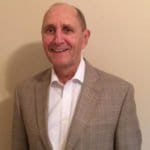 Sam Peluso started with Merrill Lynch in 1970. Listening to politicians, TV personalities and press refer to Wall Street bankers as selfish greedy Fat Cats led to his desire to write his latest book, Fat Cats…Really? Observations of a 44-Year Wall Street Executive. Being positioned on the front line allowed him to see the reality of the highs and lows of Wall Street, including the meltdown and bailouts.
Sam Peluso started with Merrill Lynch in 1970. Listening to politicians, TV personalities and press refer to Wall Street bankers as selfish greedy Fat Cats led to his desire to write his latest book, Fat Cats…Really? Observations of a 44-Year Wall Street Executive. Being positioned on the front line allowed him to see the reality of the highs and lows of Wall Street, including the meltdown and bailouts.
About Steve Rigby
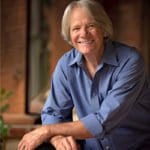 Steve Rigby is the CEO of New Wings Consulting. He is also a speaker and the bestselling author of A Joyous Journey to Sales Success. For nearly two decades, Steve Rigby served the homebuilding industry as both a student and a teacher of selling, managing, and training. He was responsible for directing the sales efforts for three of the nation’s top-ten public homebuilders. As a result, those companies experienced tremendous growth with very healthy bottom lines.
Steve Rigby is the CEO of New Wings Consulting. He is also a speaker and the bestselling author of A Joyous Journey to Sales Success. For nearly two decades, Steve Rigby served the homebuilding industry as both a student and a teacher of selling, managing, and training. He was responsible for directing the sales efforts for three of the nation’s top-ten public homebuilders. As a result, those companies experienced tremendous growth with very healthy bottom lines.